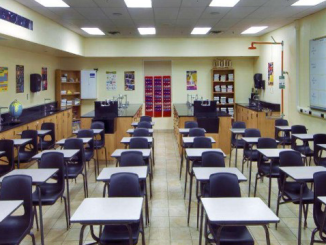
Prior to the passage of Senate Bill 744 in the Oregon Legislative Assembly’s 2021 session, the state’s “Assessment of Essential Skills” requirement for high school graduation was sensible: “read and comprehend a variety of text, write clearly and accurately,” and “apply mathematics in a variety of settings.” Students were required to demonstrate these skills by “earning at or above a cut score on the Oregon Statewide Summative Assessment test.”
{snip}
Last month, Oregon’s State Board of Education voted unanimously to adopt an additional extension of this suspension through the 2027-28 school year. Board members, alongside Oregon Department of Education leadership, argued that requiring students to complete standardized tests both presented a “harmful hurdle for historically marginalized students” and represents a misuse of state tests.
The Oregon Education Association (OEA), the union representing more than 40,000 teachers throughout the state, is a like-minded opponent of standardized testing. “Standardized tests are inaccurate, inequitable, and don’t accurately measure student learning and growth,” it declares. Further, the union labels standardized tests like Oregon’s Statewide Summative Assessment as “instruments of racism and a biased system.”
With this in mind, the OEA’s role in the development of SB 744 is unsurprising. The OEA Special Education Committee “helped to develop…and helped OEA pass…Senate Bill 744 during the last legislative session.” Further, the union brags that SB 744 “passed with OEA member support in the 2021 session” due to “several equity concerns” surrounding Oregon’s essential skill requirements.
Since Oregon abandoned its essential skill requirements for high schoolers, graduation rates have skyrocketed. With a graduation rate of 81.3 percent, Oregon’s class of 2022 set a record for the second highest four-year graduation rate ever recorded in the state. Unfortunately, this is not indicative of student skills. Only 43 percent of students in that year’s graduating class were proficient in English, and less than 31 percent were proficient in math.
{snip}
The OEA’s falling membership rate — down 4.4 percent from 2020 to 2022 — indicates that teachers in Oregon have begun to realize the destructive impact of teachers’ unions that consistently prioritize ideology over the success of teachers and students.
As Oregon considers additional changes to public education, parents and teachers should hold the state accountable while paying close attention to groups like the OEA, which are not only complicit in but actively contributing to the bleak future of public education in their state.
(*) www.WhitePrideHomeSchool.com
* Original Article:
Oregon just dropped all graduation standards, failing all of its students in the name of ‘equity’


